‘Insulting African American Gold Star widows has a history’
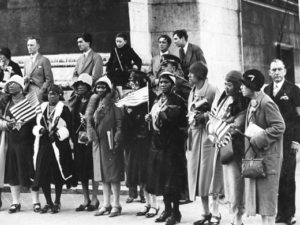
Gold Star mothers and widows visiting the Tomb of the Unknown Soldier in Paris in 1930. (Courtesy National Archives via Journal of American History)
(The Washington Post) For 11 years, Bessie Strawther longed for a chance to visit her son’s grave. Pvt. Henry Strawther, a black American soldier in a segregated infantry unit, had died fighting the German army on Oct. 6, 1918, nearly five weeks before World War I ended in armistice. Veterans in his home town of Urbana, Ohio, had named an American Legion post after him, but his body remained interred somewhere in France – an ocean away from his mother.
Then came an extraordinary proposal from the U.S. government. The War Department in 1929 created a program to send bereaved mothers and widows like Strawther on two-week, all-expense-paid trips to Europe to visit the final resting places of their sons and husbands. The journeys became known as the Gold Star mother and widow pilgrimages, named after the newly minted organization for women who had lost family members in the war.
In summer 1930, Strawther took a train from Urbana to New York City, where the War Department had arranged for her to board a commercial steamer bound for France.
But shortly after she arrived in the city, she started having second thoughts. Government officials were requiring Strawther and the other black women to travel on a different ship and stay in different quarters from white women making the same journey.
The idea of being segregated sickened Strawther. Her son had given his life, but her government still treated her as a second-class citizen. (more)
Black College Football Hall of Fame Class of 2018 Unveiled
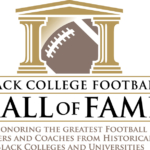 The Black College Football Hall of Fame (BCFHOF) has announced its Class of 2018. Seven inductees were selected from a list of 25 Finalists who had been determined earlier by the BCFHOF Selection Committee.
The Black College Football Hall of Fame (BCFHOF) has announced its Class of 2018. Seven inductees were selected from a list of 25 Finalists who had been determined earlier by the BCFHOF Selection Committee.
The Class of 2018 includes Harold Carmichael (Southern), Raymond Chester (Morgan State), Thomas “Hollywood” Henderson (Langston University), Leo “Lincoln Locomotive” Lewis (Lincoln), Greg Lloyd (Fort Valley State), Everson Walls (Grambling State) as player inductees and Coach Bill Hayes (Winston-Salem State and North Carolina A&T).
“This class represents three Super Bowl rings, 18 Pro Bowl selections and several Black College Football championships,” said BCFHOF Co-Founder and 2011 Inductee Doug Williams. “Take a look at what they’ve done off the field as well, and each has earned this incredible honor.” (more)
“Our American Stories”: Alvin Ailey – Transforming dance around the world
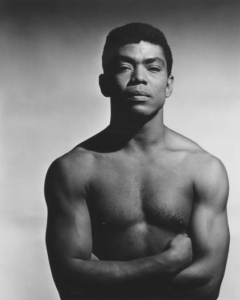
Portrait of Alvin Ailey, 1962. Photography by Jack Mitchell © Alvin Ailey Dance Foundation, Inc. and Smithsonian Institution.
“Each movement is the sum total of moments and experiences.” These are the words of dance legend Alvin Ailey. The “moments and experiences” he expressed through his decades-long dance career reflected the African American journey, changed modern dance, and revolutionized African American participation in the art form.
Ailey was born in 1931 in Rodgers, Texas, during the Great Depression. Although he left the area for Los Angeles in 1942, his earliest experiences in rural Texas – from juke joints and his Southern Baptist church, to living with a survivalist mentality during the Jim Crow era – would go on to feature prominently in his work. (more)
“The cultural heritage of the American Negro is one of America’s richest treasures. From his roots as a slave, the American Negro – sometimes sorrowing, sometimes jubilant but always hopeful – has touched, illuminated, and influenced the most preserves of world civilization. I and my dance theater celebrate this trembling beauty.” – Alvin Ailey
TIPHC Bookshelf
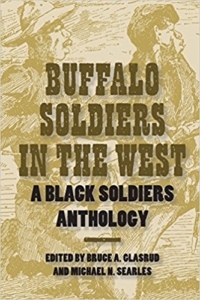 Published scholarship on black history in Texas is growing and we’d like to share with you some suggested readings, both current and past, from some of the preeminent history scholars in Texas and beyond. We invite you to take a look at our bookshelf page – including a featured selection – and check back as the list grows. A different selection will be featured each week. We welcome suggestions and reviews. This week, we offer, “Buffalo Soldiers in the West, A Black Soldiers Anthology,” edited by Bruce A. Glasrud and Michael N. Searles.
Published scholarship on black history in Texas is growing and we’d like to share with you some suggested readings, both current and past, from some of the preeminent history scholars in Texas and beyond. We invite you to take a look at our bookshelf page – including a featured selection – and check back as the list grows. A different selection will be featured each week. We welcome suggestions and reviews. This week, we offer, “Buffalo Soldiers in the West, A Black Soldiers Anthology,” edited by Bruce A. Glasrud and Michael N. Searles.
In the decades following the Civil War, scores of African Americans served in the U.S. Army in the West. The Plains Indians dubbed them buffalo soldiers, and their record in the infantry and cavalry, a record full of dignity and pride, provides one of the most fascinating chapters in the history of the era.
This anthology focuses on the careers and accomplishments of black soldiers, the lives they developed for themselves, their relationships to their officers (most of whom were white), their specialized roles (such as that of the Black Seminoles), and the discrimination they faced from the very whites they were trying to protect. In short, this volume offers important insights into the social, cultural, and communal lives of the buffalo soldiers.
The selections are written by prominent scholars who have delved into the history of black soldiers in the West. Previously published in scattered journals, the articles are gathered here for the first time in a single volume, providing a rich and accessible resource for students, scholars, and interested general readers. Additionally, the readings in this volume serve in some ways as commentaries on each other, offering in this collected format a cumulative mosaic that was only fragmentary before.
Volume editors Glasrud and Searles provide introductions to the volume and to each of its four parts, surveying recent scholarship and offering an interpretive framework. The bibliography that closes the book will also commend itself as a valuable tool for further research.
This Week in Texas Black History, Oct. 29-Nov. 4
October

E.H. Anderson
Oct29
E.H. Anderson, Prairie View State Normal School principal, died on this day in 1885. Anderson, a native of Memphis, had become the school’s second principal in 1879.
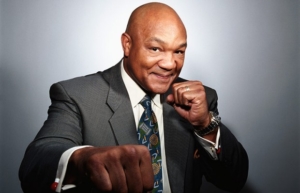
George Foreman
Oct30
On this day in 1974, Houston’s George Foreman, heavyweight champion, lost his title to Muhammad Ali in the “Rumble in the Jungle” in Kinshasa, Zaire. Foreman was favored to win, but in the second round, Ali began his “rope-a-dope” strategy – leaning against the ropes while shielding his head and absorbing body blows from Foreman. As Ali continued the tactic, Foreman tired and his punches lost power and in the eighth round a visibly fatigued Foreman was knocked down for the first time in his career and counted out suffering his first defeat. Years later, Foreman would say, “The day after I lost to Ali, people came by and put a hand on my shoulder and said, ‘It’s okay, George. You’ll have another chance.’ That was pity. (I went) from being feared to being pitied. Brother, that’s a long fall.”
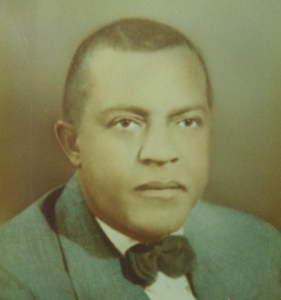
Clifton Richardson
Oct30
On this day in 1892, Clifton Richardson was born in Marshall, Texas. Richardson became founder (in 1919), editor and publisher of the Houston Informer. In 1930, he had the same roles with the Houston Defender. Richardson was also a vocal supporter of civil rights and a founding member of the Civic Betterment League (CBL) of Harris County and founding member and later president of Houston’s NAACP chapter.
Oct31
On this day in 1835 a volunteer company was formed in Huntsville, Ala. to travel to Texas and help fight in the Texas Revolution against Mexico. A free black, Peter Allen, a flutist, was welcomed into the company as a musician. Allen, a native of Philadelphia, Pa. was the son of Richard Allen, founder and first Bishop of the African Methodist Episcopal Church. On March 20, 1836, Allen and his company, approximately 300 men commanded by Col. James Walker Fannin, participated in the Battle of Coleto Creek, but the men were forced to surrender and were imprisoned at Goliad. A week later, on Palm Sunday, all of the men were executed and their bodies burned in what became known as the Goliad Massacre. Asked by the Mexican commander to play a tune in exchange for his freedom, Allen refused and was also executed. Reportedly, Allen had responded to the request by saying, “No, I’ll not play, but I’ll just go along with the rest of the boys.”
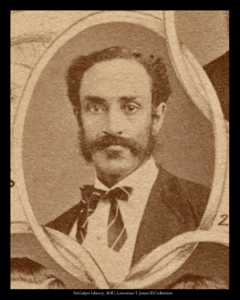
George T. Ruby
Oct31
State Senator George T. Ruby died of malaria in New Orleans on this day in 1882. Ruby had been an agent for the Freedman’s Bureau administering its schools for former slaves. In 1868 he was the only black delegate from Texas at the National Republican Convention and also was one of 10 African American delegates to Texas Constitutional Convention of 1868-69. As a senator in the 12th Legislature Ruby was appointed to the Judiciary, Militia, Education, and State Affairs committees. He introduced successful bills to incorporate Texas railroads and a number of insurance companies and to provide for the geological and agricultural survey of the state. He was called “one of the most influential men of the 12th and 13th Legislatures,” and one of the “most prominent black politicians of Reconstruction.”

Kenneth Sims
Oct31
Kenneth Sims was born on this day in 1959 in Kosse, Texas. Sims, a defensive end, would become the first member of the University of Texas football program to win the Lombardi Award, presented to college football’s best lineman. Sims won the award as a senior, in 1981, and was taken No. 1 overall in the 1982 National Football League draft by the New England Patriots. He played eight years in the NFL.
November
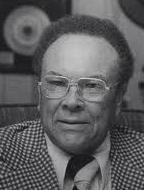
Don Robey
Nov1
In 1903, on this day, Houston music impresario Don Robey was born. Robey was influential in developing the Texas blues scene, but he also produced major gospel talents. Robey’s music business empire included several music labels, most prominent being Peacock Records, and his was likely the first such enterprise run by an African-American. Robey produced dozens of blues and gospel artists, including Bobby “Blue” Bland, Clarence “Gatemouth” Brown, Memphis Slim, Willie Mae “Big Mama” Thornton, the Dixie Hummingbirds, and the Mighty Clouds of Joy.

Nov2
On this day in 1963, the Baylor University Board of Trustees voted to integrate the school, the world’s largest Baptist institution of higher learning. Hilton E. Howell, chairman of the board, said, “The action of the Baylor University Board of Trustees was taken after full and free discussion. While the final vote of the board adopting the new policy was not unanimous, the decision was reached by amicable discussion and democratic procedure.”
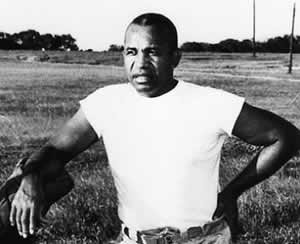
Billy Nicks
Nov2
On this day in 1999, legendary Prairie View A&M football coach Billy Nicks passed away in Houston at age 94. Nicks was a native of Griffin, Ga. and attended Morris Brown College in Atlanta where he played football, basketball, baseball, and ran track. As a coach, his 1941 Morris Brown team was named black college national champion, but it would be in Texas, at Prairie View, where Nicks would make his mark as one of the top coaches in college football history. He began coaching at Prairie View in 1945 and in 17 years compiled a 127-39-8 record and won eight Southwestern Athletic Conference championships and five black college national championships. He had five undefeated seasons as Prairie View became a black college football power in the 1950s and 1960s. Nicks had a winning record against every SWAC opponent, including Grambling State and legendary head coach Eddie Robinson. Nicks’ overall record, for 28 years, was 193-61-21, a winning percentage of .763. He is a member of numerous halls of fame, including the College Football Hall of Fame, NAIA, and the SWAC.
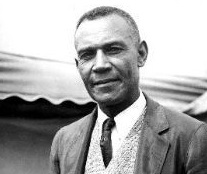
Matthew Hooks
Nov3
Matthew “Bones” Hooks was born on this day in 1867 to former slave parents in Robertson County, Texas. Hooks was a cowboy and legendary horse breaker, who was also one of the first black cowboys to work alongside whites as a ranch hand. He later became a civic leader and worked with youth groups in Amarillo.
Blog: Ron Goodwin, Ph.D., author, PVAMU history professor
Ron Goodwin’s bi-weekly blog appears exclusively for TIPHC. Goodwin is a San Antonio native and Air Force veteran. Generally, his column addresses contemporary issues in the black community and how they relate to black history. He and the TIPHC staff welcome your comments.
Latest Entries
A New Hope
Forgive me for borrowing the title of one of the most profitable films in history, “Star Wars: A New Hope.” I’ve always been enamored by space. I’m a child of the 1960s and I remember playing with my Major Matt Mason action figure (not a doll!) as my family [...]
Tell me the truth
Democracy – a) government by the people, b) a government in which the supreme power is vested in the people and exercised by them, directly or indirectly through a system of representation usually involving periodically held free elections. Merriam-Webster Dictionary There were many things I learned from my father. [...]
Submissions Wanted
Historians, scholars, students, lend us your…writings. Help us produce the most comprehensive documentation ever undertaken for the African American experience in Texas. We encourage you to contribute items about people, places, events, issues, politics/legislation, sports, entertainment, religion, etc., as general entries or essays. Our documentation is wide-ranging and diverse, and you may research and write about the subject of your interest or, to start, please consult our list of suggested biographical entries and see submission guidelines. However, all topics must be approved by TIPHC editors before beginning your research/writing.
We welcome your questions or comments. Please contact Mr. Michael Hurd, Director of TIPHC, at mdhurd@pvamu.edu.
